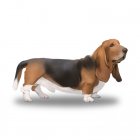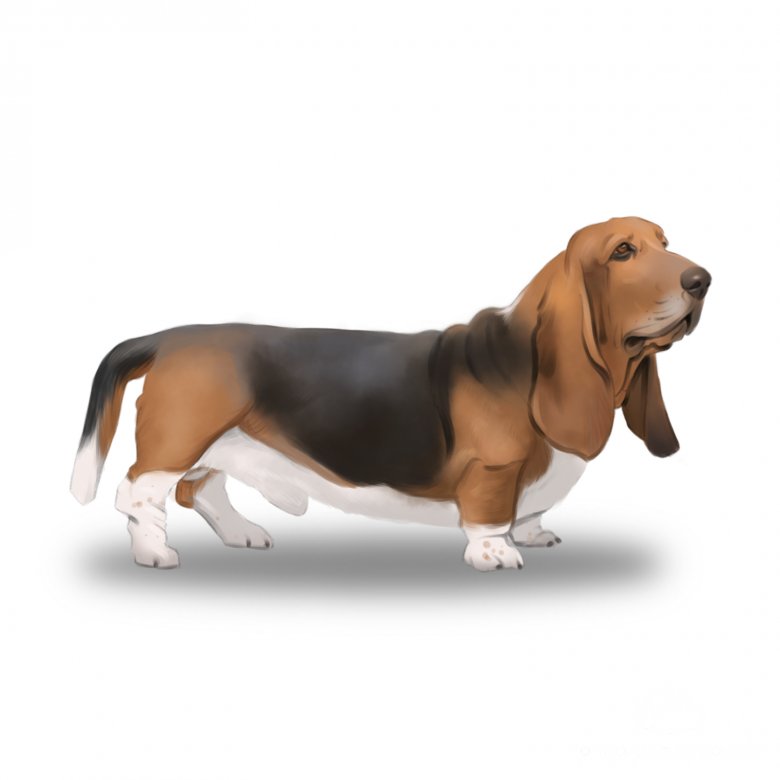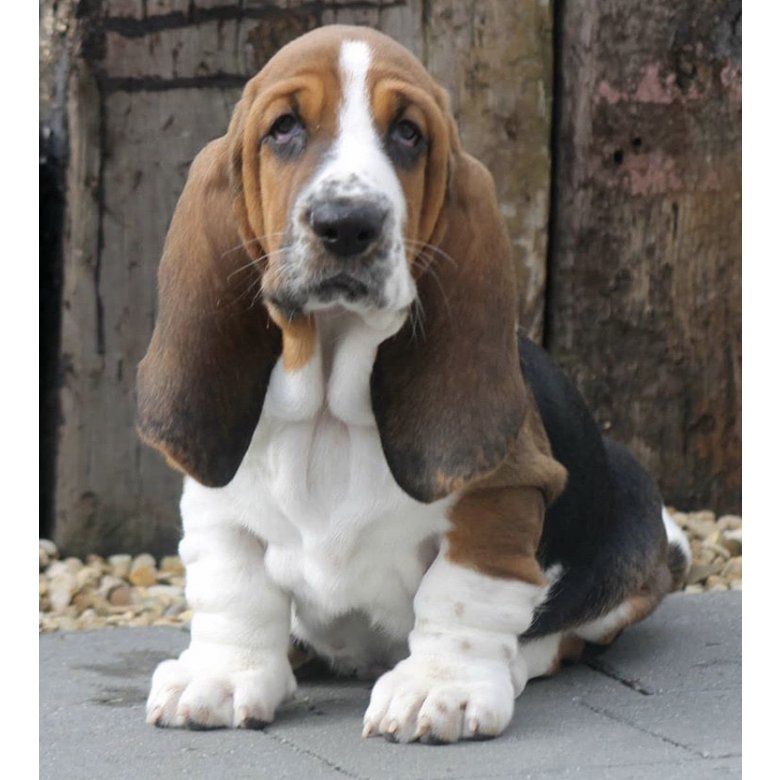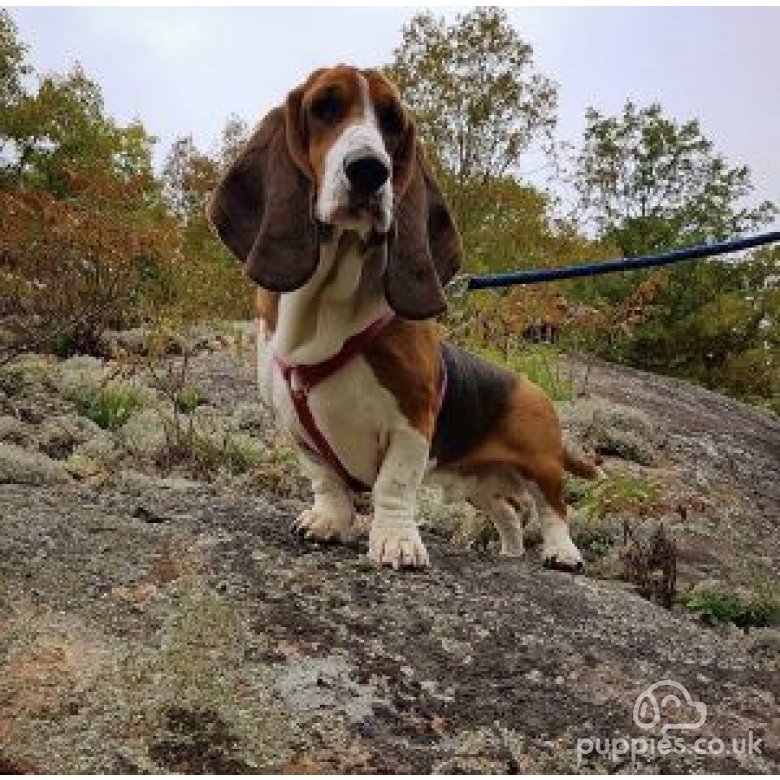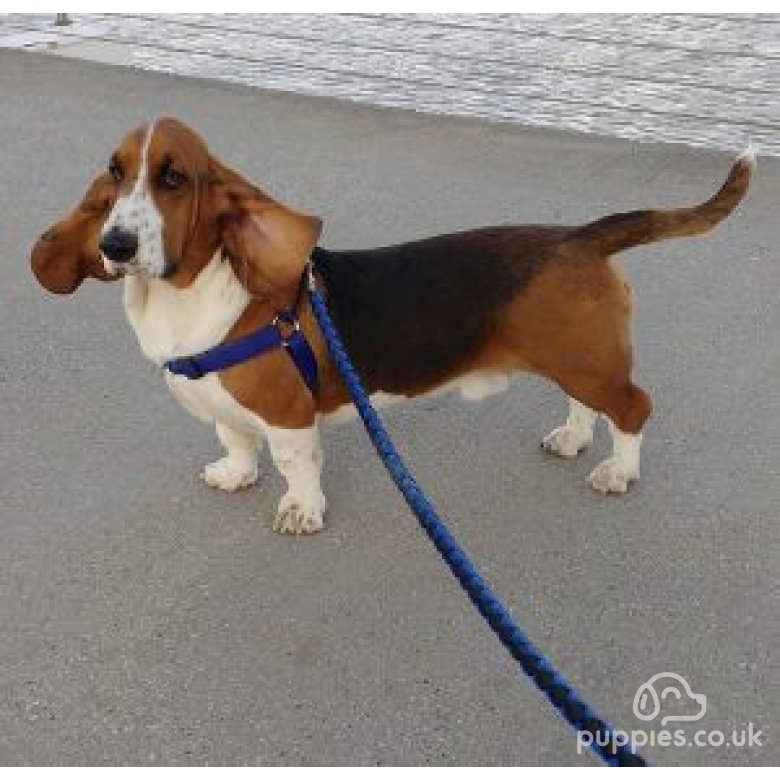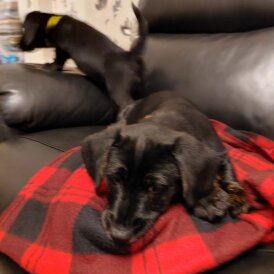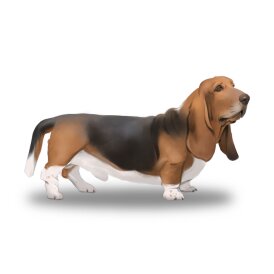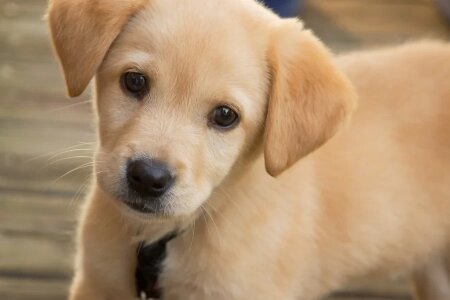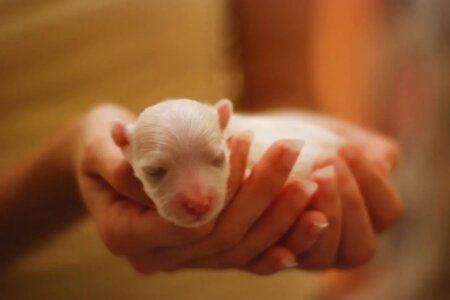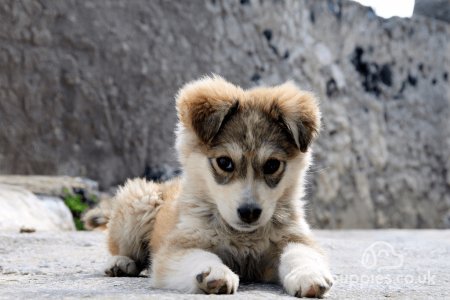Why Basset Hounds are great
Although originally bred to hunt game, Basset Hounds are loyal, gentle and affectionate dogs who make excellent family pets. With their extraordinarily kind nature and distinctive, lovable features, Basset Hounds are sure to find their way into your heart. Some highlights:
Basset Hounds are very calm dogs, so are great for owners who want a quieter, less energetic breed.
They are very comfortable around both younger and older children.
They are short-coated, so are low maintenance in terms of grooming.
Because of their easy nature, these dogs make excellent companions for older people.
Things to consider when looking at Basset Hounds for Sale
Although on the whole Basset Hounds are lovely dogs, there are some aspects of this breed that prospective buyers should consider before purchasing. Some downsides to the Basset Hound:
Basset Hounds can be stubborn and therefore difficult to housetrain.
Because of their origins as hunting dogs, Basset Hounds have a tendency to follow scents, wherever they may lead, and may turn a deaf ear to your attempts to call them back.
These dogs are known to love their food, and may well help themselves to any food left lying around.
History of Basset Hounds
Although originally bred in France, and closely related to French Bassets, Basset Hounds have over the years become unique to Britain. Their name originates from the word ‘Basset’, which means ‘low’ in French, and refers to their lack of height. Although there is evidence that they were imported to Britain in the 15th century by King James IV of Scotland, Basset Hounds as we know them today only trace back as far as the 19th century, when Sir Everett Millias brought one to Britain. It was only then that records of the breed started being kept. Basset Hounds became very popular with the Royal Family in the late 1800s, and HRH Princess Alexandra was a prominent member of the Basset Hound Club. Nowadays, due to their unique looks and sweet nature, they are one of the most well-known breeds in the world.
Appearance
There aren’t many breeds as unique-looking as Basset Hounds, whose features have been recreated in caricatures over the years. Perhaps the most distinctive part of these dogs is their jowls, which hang low and bounce around when they run. Their ears are long and velvety, and their calm eyes give them the appearance of seriousness. All in all, you’re unlikely to forget these dogs once you’ve seen them - they make quite the impression!
How big is the Basset Hound?
Basset Hounds are a medium-sized breed, as their physique is large and powerful but their legs are short, meaning they sit low to the ground. An average male or female Basset Hound will measure between 28 and 38 cm at the withers.
How heavy is a Basset Hound?
A typical male will weigh between 25 and 30kg, and a female between 20 and 29kg.
What Colour is the Basset Hound?
Basset Hounds come in four colour varieties: Lemon and White, Red and White, Tan and White and Tricolour.
Temperament
Do Basset Hounds make good guard dogs?
Basset Hounds do not make great guard dogs, as although they may bark at the presence of a stranger, they are also likely to try to befriend the stranger afterwards.
Do Basset Hounds bark a lot?
These dogs have in the past been referred to as a ‘melodious’ breed, as they have a tendency to bark when they want attention. They are not generally known to bark for no reason, but may howl when displeased, especially if left alone for a long period of time.
Are Basset Hounds easy to train?
Basset Hounds have what you might call a ‘strong personality’ - they have a tendency towards stubbornness and selective hearing, which can make them difficult to train. These dogs need consistent training from a patient owner, as if their training is rushed they may develop behavioural issues.
Are Basset Hounds playful?
Basset Hounds are not an especially playful breed, as their calm nature means they have a tendency towards laziness. Although they will happily run around for hours when they are out in the fields, when at home they will be more content sitting in front of a fire than playing with their owner.
Are Basset Hounds good with children?
Basset Hounds are known for being excellent with children of all ages, due to their calm, kind temperament. As with all dogs, however, interactions should be supervised to avoid accidents.
Are Basset Hounds good with other pets?
As with children, these gentle dogs are very good with other pets.
Can I leave a Basset Hound Alone?
Basset hounds are pack dogs, and will become unhappy and howl if left alone for long periods of time. This will be less of an issue in households with multiple dogs, as they will not feel so lonely if they have another dog as a companion.
Health
On the whole, Basset Hounds are a healthy breed, but they can be prone to certain conditions. In particular, they are more likely to develop skin and ear infections than some other breeds.
How long do Basset Hounds live?
A well-cared-for Basset Hound can be expected to live for between 10 and 12 years.
How much exercise does a Basset Hound need?
Although these dogs make good hunting companions as they have large amounts of stamina, their exercise needs are only moderate. However, owners should make sure to take them on walks often, and resist the temptation to indulge their lazy tendencies.
What are Basset Hounds Common health issues?
Being pedigree dogs, Basset Hounds may be prone to certain specific or hereditary health issues, such as Entropion or Ectropion (eyelids folding inwards or outwards), Primary Glaucoma, Invertebral disc disease, Elbow dysplasia, Malassezia Pachydermatitis (a skin condition) and Bloat or gastric torsion. Owners should also note that this breed should not be allowed to run up and down stairs, or jump too much, as this may put pressure on their joints and bones and cause issues.
Care
How much space do I need for a Basset Hound?
These docile, lazy dogs would be very happy in a small house or apartment. They should live indoors, and are not suited to outdoor living. These curious dogs would love to have access to a garden, where they can sniff around to their heart’s content.
What should I feed my Basset Hound?
The recommended amount of food for a Basset Hound is 1.5-2.5 cups of food a day, divided between two meals. These dogs are prone to bloating, so dividing their meals is important to avoid them developing this potentially fatal condition.
How much grooming do Basset Hounds need?
On the whole, Basset Hounds are low maintenance, and do not require lots of grooming. They do, however, shed a reasonable amount, so owners may want to brush their dogs once a week or so to avoid them depositing hair around the house.
Average costs
How much does it cost to keep a Basset Hound?
As a rough guide in pricing: Cost to buy: roughly between £500 and £800 for a well-bred Basset Hound puppy Other costs (Vet, Food etc): £40-60 per month for food, £25-50 per month for veterinary insurance.
Specific Buying Guide
You can read our general buying guide here (/advice-on-buying-a-puppy/), with the most important thing being going to view your Basset Hound Puppy, seeing it with its mother, and checking the quality of the breeder. More specifically, here is some Basset Hound puppy buying advice:
Prospective buyers should think carefully about buying a merle puppy, as Basset Hounds with the merle gene are more prone to developing health issues which affect their sight and hearing.
Other reading, Adopting Basset Hound Puppies and Rescue Organisations
A big thank you to the following sources who helped to shape this article: https://bassethoundwelfare.org.uk/ https://brngb.org.uk/ https://www.bassethoundowners.org.uk/ https://www.thekennelclub.org.uk/services/public/findaclub/breed/list.aspx?id=1003






